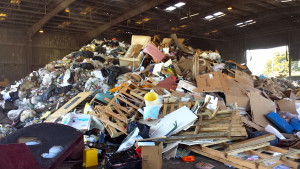A client told me today his son had so many toys in his room, it had become nothing more than a storage area where he sleeps.
For more than 100 years we’ve lived in a consumer culture. There is an article that ran in TIME Magazine last month (America’s Clutter Problem, March 2015) that does a great job summarizing why people, specifically American’s, tend to have more stuff than we used to. One of the biggest reasons cited is the way buying itself has become so easy. Think “one-click” ordering. No time to ponder whether or not we need it – just click it and it’s yours. In a consumer culture that’s like sending a kid into a candy store with no restrictions and a pocketful of cash.
The culture of consumerism in 2015, just 7 years post-recession, – is showing signs of change. Some call it the new “shared economy,” others call it a movement towards “essentialism.” Think tiny homes and shared work spaces.
Technology is also changing the the way we use space in our homes. We now have streamed media, digital tablets and flat screen TVs. In its wake, however, we’ve left old VHS tapes, worn books and magazines, and large TV cabinets – not to mention thousands of analog TVs and even cathode-tube versions left behind in our grandparents garages.
We recycle but more often than not we dump. If you don’t believe me take a field trip, like I did recently, to your local “Transfer Station.” It looks like something from a post apocalyptic sci-fi thriller but it’s as real as the stench that hits you when you first drive in.
One of the most astounding statistics I read in the TIME article stated that while children in the U.S. make up only 3.1% of the world’s kid population, we Americans buy more than 40% of the world’s toys. Sure it’s great that you’re donating a few bags of clothing to Goodwill but the bigger issue is that we keep acquiring! Is this the legacy you want to leave your kids?
Our consumerism has become a zero-sum game. Consider there is so much stuff in your life and so much space to contain it. If you have more space than stuff, you may feel a sense of emptiness or deprivation. As consumers, we fight off these feelings by filling the space we have. If you have more stuff than space eventually you’ll feel stifled, stressed and stuck. In the latter example, you have two options: get more space; a bigger house, extra storage, which of course can cost a lot (the self-storage industry is a $24 billion business) or make the tough decision to purge what you no longer love, need or use. If you need help to physically sort and purge those things, consider hiring a professional organizer who can get you through the task.
In much the same way your doctors advise you to cut down on excess sugar, saturated fats or other unhealthy foods to reduce your risk of disease, you can also cut back on those “sweet deals” you see for items you don’t need in the first place. If your house has gotten fat from too much cheap, unwanted, unused or unusable stuff, then it’s time to make a change, and put yourself on a clutter diet. The first step: stop buying what don’t need.
Posted by


